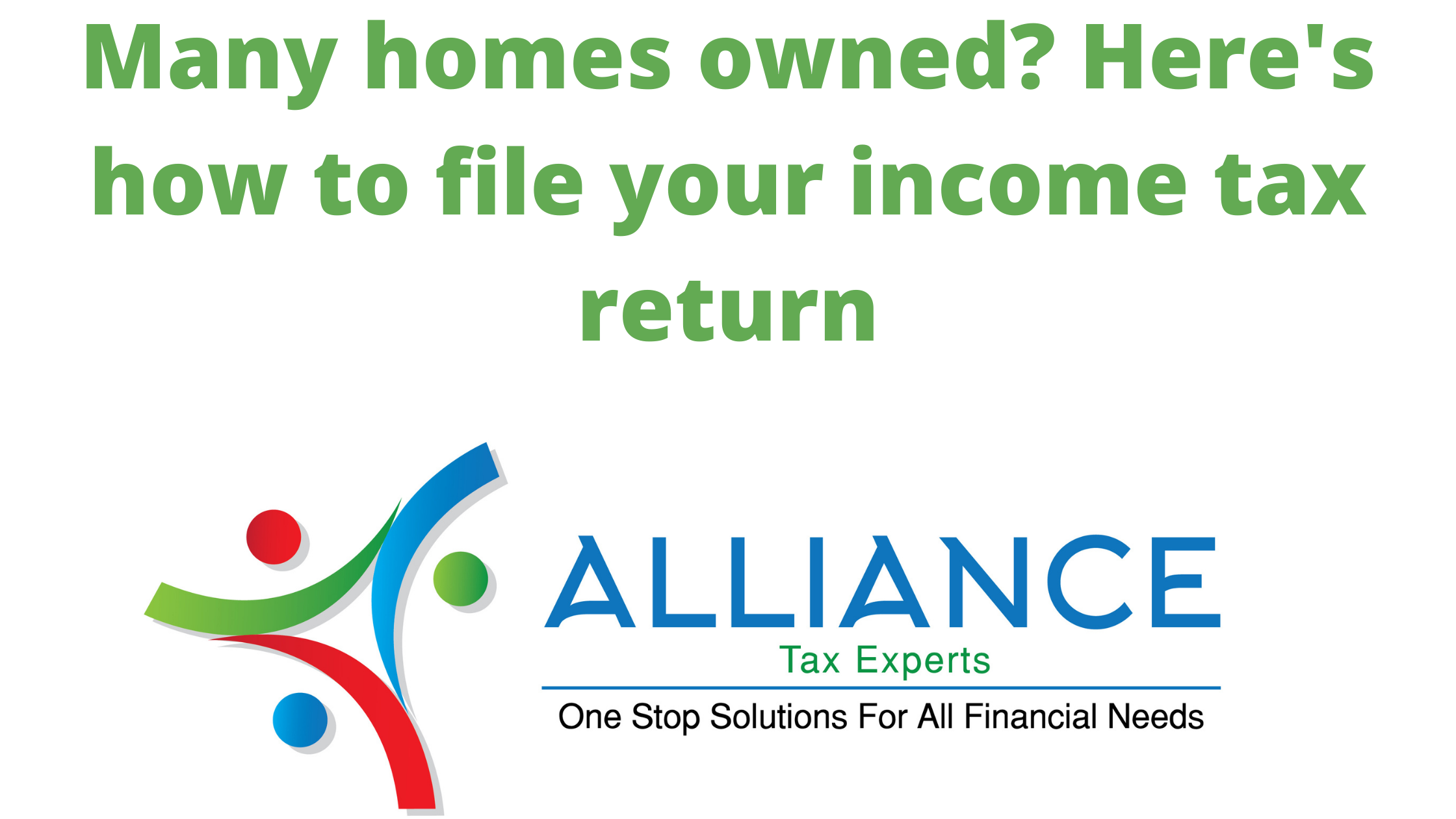
09 Oct
Many homes owned Here how to file your income tax return
Many
homes owned? Here's how to file your income tax return
If you have more than two properties, regardless of whether the other
houses are vacant or in your possession, they will all be deemed to be let out
If you have multiple homes, you have given the benefit of the property
you own to only two properties. Others are deemed to have been 'deemed to be
let out for the purpose of levying income tax. Owned property is a property
that the taxpayer occupies for his or her residence throughout the year. For assets
that have been let out, or are deemed to have been let out, you will have to
pay tax on rental income.
In the interim budget for 2019-2020, the government waived the imposition
of income tax on the notional rent of a second self-occupied house.
Tax on rent or notional rental income
If you have more than two properties, regardless of whether other houses
(spaces) are vacant or in your possession, they will all be considered deemed
to be let out. The annual value of the house (under section 23 (1) (a) of the
Income-tax Act, 1961) will be fixed on which the tax will be levied.
The annual value is the expected rental value of the home, which is
taxable in the hands of the owner, says Pooja V, tax manager, Alliance tax
experts, a tax and consulting firm. “It is calculated taking into account
reasonable rent, standard rent and municipal value,” she says.
Reasonable rent is rent that can be found in the same house or in the
same place. Standard rent is the rent fixed for a home property under the Rent
Control Act. The value of the corporation is the amount of rent estimated by
the corporation of the area.
Here's
how to calculate the notional rent of a property you're supposed to have been
let out.
Step 1: Determine the reasonable fare, standard fare and municipal value
Step 2: Calculate the annual value. This figure is higher than the fair
rent and municipal value
Step 3: Compare the annual value with standard rent. Notional fares are
lower than both.
Can we combine all the rental income under one head?
It is not allowed to combine all the rent receipts in one account. For
example, you cannot claim the cost of one property when calculating the rental
income of another.
Pooja V, explains that all but two of the houses designated as
'self-owned will be considered deemed late-out. “Since no actual rent is
received from a deemed let-out property, the expected rent of such property is
considered annual value,” she says.
Pooja says such income will be taxable under the heading "Income
from home property".
Deduction on income from household assets
You are allowed to claim multiple deductions when you own the property.
A) Municipal tax: In the case of house property, municipal tax is allowed
as a deduction if paid by the owner.
B) Standard Deduction [Section 24 (a)]: 30 per cent of the net annual
value of the home property is allowed as deduction if the property is let out
during the previous year.
Home loan reduction
Under Section 80C of the IT Act, you can claim an income tax deduction on
the principal repayment of up to Rs 1.5 lakh. You can also claim a deduction
under Section 80C for registration and stamp duty.
Further, for a house in your own possession, you can claim an interest
amount of up to Rs 2 lakh under Section 24 (b) of the IT Act. The same is true
if the property is rented out. However, anyone can claim under the heading of
home property the total loss is limited to only Rs 2 lakh. Losses of more than
Rs 2 lakh can be carried forward for set-off for years to come.
Also, the government has extended an additional tax deduction of Rs 1.5
lakh on interest on home loans (Section 80EEA) for the purchase of affordable
homes till March 31, 2022.
Which Income Tax Return (ITR) form to use?
The number of assets you own also determines which return you choose the
ITR form to file. Pooja of Alliance Tax Experts says: “A taxpayer who owns more
than one house is not eligible for ITR-1. In ITR-2/3/4, the taxpayer has to
file a return of income. Next, he must submit details of each home property,
such as an address, percentage of ownership, and co-owners PAN, in exchange for
income.
#house property #Income Tax #Tax #alliancetaxexperts #taxconsultant #ca #efilingincometax #gstconsultant
#onlineincometax #canearme